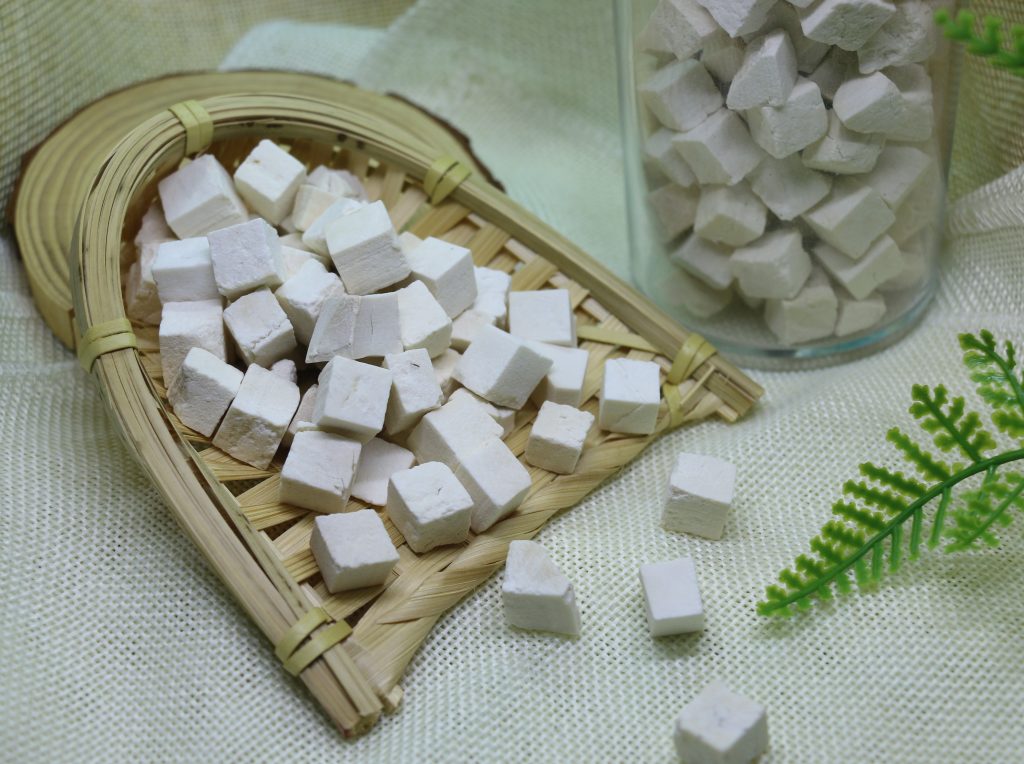27 October 2020, Published on Gut Microbes (IF 9.434) © Taylor & Francis Group, LLC.

Alcoholic liver diseases (ALD) have been worldwide spread, and become one of the serious liver diseases. Scientists found that chronic alcoholism-induced overgrowth of intestinal bacteria and fungi coursed the enteric dysbiosis are important pathogenic mechanisms in ALD. In this paper, researchers demonstrated that the water-insoluble polysaccharides (WIP) from Wolfporia cocos effectively ameliorated the hepatic inflammatory injury and fat accumulation through modulating gut microbiota in mice with alcoholic hepatic steatosis (AHS).
The mechanism showed:
- Oral administration of WIP significantly enhanced the ratio of Firmictues (contains high peptidoglycans in the cell wall) to Proteobacteria (includes many pathogenic bacteria);
- WIP increased the abundance of Lachnospiraceae including many probiotics, such as Ruminoclostridum and unidentified_clostridials;
- WIP inhibited the alcoholism-induced fungal overgrowth;
- Treatment with WIP activated the PPAR-γ signaling and reduced the inflammation in the colonic epithelia cell;
- WIP facilitated a hypoxic state that suppresses the overgrowth of fungi and Proteobacteria in the gut.
In addition, researchers found an overwhelming increase of the commensal fungus Meyerozyma guilliermondii in the feces of mice with AHS. As well, Inoculation of M. guilliermondii into fungi-free mice aggravated the features of AHS. M. guilliermondii was found to generate PGE2 by biotransformation of arachidonic acid. PGE2 was involved in a variety of physiological activities, including apoptosis, inflammation, cardiovascular disease, etc. Moreover, the gut fungi (M. guilliermondii)-induced PGE2 production in the liver was confirmed as one of the mechanisms in the chronic AHS.
In summary, the results of this study supported the gut microbiota (bacteria and fungi) could be considered as an effectively alternative strategy for mitigating ALD. WIP from W. cocos is a potential ideal prebiotic meeting these requirements for the treatment of alcoholic hepatic steatosis. Due to the good pharmacological activities and high safety, clinic studies of WIP deserve further investigation.
Sun S, Wang K, Sun L, et al. Therapeutic manipulation of gut microbiota by polysaccharides of Wolfiporia cocos reveals the contribution of the gut fungi-induced PGE2 to alcoholic hepatic steatosis. Gut Microbes. 2020;12(1):1830693.


